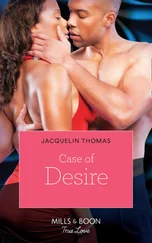“May I see it?”
“My studio? Why?”
“Just to get a feel for the place.”
“All right,” Linton said with no further question. He pulled himself up and led Frank slowly into the back room.
A rush of bright sunlight swept the room, and Linton’s white hair gleamed brightly in its rays.
“This is it,” he said, “my life’s work.”
It was like a world of half-created things, canvases of ill-formed landscapes, half-colored faces, sketches, drawings, splotches of color that seemed little more than random, careless splatterings of red and yellow. It was as if Linton had spent his life in random, sporadic attempts to capture something that continued to elude him.
“This is where you took her that afternoon?” Frank asked.
“Yes.”
Frank peered about the room. There was something beautiful about it. The canvases were bound evenly, the frames neatly stacked. But it was not order which made it beautiful, it was the struggle to bring some order to everything outside the room, to all that was less tractable than mere frames and brushes.
“It’s a nice place,” Frank said.
“I’ve seen worse.”
Frank glanced toward a vase of freshly cut flowers which rested on one of the tables near the easel.
“A friend of mine brings them here occasionally,” Linton said. “As a matter of fact, she brought them the day Diana came. We were in the studio when Miriam came in. She looked a little surprised to see the girl. She said, ‘Oh, it’s you.’”
“She knew her?”
“I guess she did.”
“Did she say anything else?”
“No,” Linton said. “She just smiled and dropped off the flowers.”
“And the woman. What is her name?”
“Miriam Castle,” Linton said. “And if you’re looking for the closest thing this city has to a real art patron, that’s Miriam.”
“Where does she live?”
“She spends her summers in La Grange,” Linton said. “She’s very rich. She has one of those huge plantations out there.”
“And the address?”
Linton laughed. “You won’t need an address. Everybody in La Grange knows where the Castle plantation is.” He looked slowly around the room. “God, I will miss this place.” He nodded toward the corner. “The girl stood in that area right over there. I gave her a quick tour of the place. I showed her some paintings, some sketches, the usual stuff. It was like giving a lesson to a kindergarten kid.”
“Did she seem that young?”
“She seemed hardly to exist at all,” Linton said.
“Did you ever mention her to … is it Miss or Mrs. Castle?”
“Miss.”
“Did you ever mention her to Miss Castle?”
“No.”
“It never came up?”
“Never,” Linton said. “And that’s not unusual for the two of us. We never talk about mutual acquaintances or anything having to do with each other’s personal lives.”
“Why not?”
“We’ve had a certain division of feeling over the years,” Linton said. “She wanted something that I couldn’t give her.” He stepped back toward the door. “I’d rather not stay too long in here.”
“Of course,” Frank said.
A few minutes later, Frank was on the porch again, staring at Linton through the gray screen.
“Thanks for your time,” he said.
Linton looked at him closely, his eyes still fixed on Frank’s slowly healing face.
21
Even in his dreams, Frank could not have imagined the splendor that greeted him as he passed through the large gate and entered the grounds of the Castle plantation. It had taken him almost two hours to get to La Grange, but the beauty of the estate suddenly relieved much of the long drive’s accumulated weariness and tension. Huge magnolias spread their great leaves in a rising tower of gently swaying green. To the left, weeping willows hung motionlessly over a blue lake, and beyond the water, almost like a phantom, he could see the great white portico that looked out over everything.
A small woman in a black dress and white apron greeted Frank at the door.
Frank took out his badge. “I called earlier. Miss Castle agreed to see me this afternoon.”
“You must be Mr. Clemons.”
“That’s right.”
“Please come in, Miss Castle will be with you in a moment.”
The luxuriance of Karen’s house was muted when compared to the sweeping foyer he entered now. An enormous staircase unfolded from the second floor and down along walls covered with paintings and brightly colored tapestries.
“May I take your hat, sir?” the woman asked.
“No, thanks,” Frank said. “I’ll hold on to it.”
“Miss Castle has asked that you wait here,” the woman said. “She’ll be down in a minute.”
“That’ll be fine,” Frank said.
A few minutes later, Miriam Castle arrived. She walked down the long, winding staircase, and even from a distance, Frank could see that she was an elegant, graceful woman with silver hair and a remarkably unlined face.
She offered her hand gently as she stepped over to Frank.
“I’m pleased to meet you,” she said. She smiled politely. “I was just going out for my evening walk. I was hoping that you might join me.”
“Yes, fine.”
“Good,” Miss Castle said. “Come.”
A few minutes later, the two of them were strolling slowly amid the rich foliage of the grounds. Wisps of Spanish moss hung from the branches overhead, and in the distance a small clear stream meandered right and left through the oak and elm.
“We gained all this through slavery,” Miss Castle said. “One of my distant relatives was in the slave trade almost from its beginnings. Family legend has it that he was a kind man. But then, what family legend ever contained a cruel one?” She laughed. “A fact which Derek never tires of pointing out.”
“How long have you known him?”
“Forever,” Miss Castle said. “Or at least it seems that long. Actually, it’s been about forty years. I still bring him flowers, you know.”
“Yes, I saw them.”
She turned toward him. “I don’t know, Mr. Clemons, perhaps it’s just the light or the way the lake looks right now, but I feel quite full of things.”
“Things?”
“Truths,” Miss Castle said. “Even difficult ones sometimes seem quite beautiful.” She walked to the edge of the lake and stopped. “What did Derek tell you about me?”
“Nothing.”
She smiled. “Of course. He’s always been like that.”
“What should he have told me?”
“Well, for one thing, that I’ve been in love with him for all these many years.”
Frank said nothing.
“Does that strike you as tragic?” she asked him.
“No.”
She looked back at him. “Why not?”
“Because it lasted.”
“But others have a quite different opinion,” Miss Castle said. “They see me as a woman who’s spent her life loving a man who … well … who cannot love women.” She laughed. “It’s really more a comedy, don’t you think?”
“Neither one,” Frank said.
Miss Castle looked at Frank sweetly. “Women of my class are attracted to two things, Mr. Clemons, money and character. Derek had character.”
“He still does,” Frank said.
“Yes, and he will maintain himself intact,” Miss Castle said. She allowed her eyes to follow the flitting movement of a starling in the tall white oak. “How is he?”
“He’s dying.”
“Yes, I thought so,” Miss Castle said, “of that awful disease.” The bird took flight and she looked back at Frank. “I shall think of myself as a widow, even though he would not approve of that.”
“Perhaps, he would.”
“No, he wouldn’t,” she said determinedly. “I won’t lie to myself about that. I have desired a man who does not and cannot desire me. Tragedy or comedy, in either case, it is the truth.”
Читать дальше












